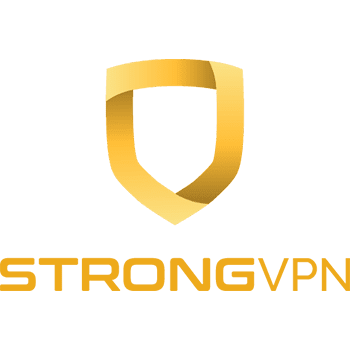Top 10 Best VPNs for Tablets
- Fast & secure servers in USA, UK & over 100 more countries
- Change your IP address & use the internet privately & securely
- Verified to work with popular platforms, apps & services
- Discover the best VPN deals & VPN free trials
| VPN Service | Features | Score | |
|---|---|---|---|
1 / Best VPN Overall | The best all-round VPN. Extremely fast, reliable & secure. Perfect for high bandwidth activity. 24/7 live chat support. Outstanding!
| 9.8 | Visit Siteat Expressvpn.com |
2 | Fast speeds & effective privacy settings. Dedicated anonymous IP system. 24/7 live chat support.
| 9.4 | Visit Siteat Cyberghost.com |
3 | High speed VPN with a large server network & advanced security settings. 24/7 live chat support.
| 9.3 | Visit Siteat Piavpn.com |
4 | Reliable VPN built for beginners. Strong security & privacy features. 24/7 live chat support.
| 9.1 | Visit Siteat Surfshark.com |
5 | Excellent speeds, no-logs policy & advanced security features. Popular with Firestick users. Live chat support.
| 9.0 | Visit Siteat Ipvanish.com |
6 | Reliable speeds & very good privacy features. Simple and easy to use apps. Live chat support.
| 8.7 | Visit Siteat Privatevpn.com |
7 | Great speeds via its Hydra VPN protocol. Good security standards. 24/7 live chat support.
| 8.4 | Visit Siteat Hotspotshield.com |
8 | Secure VPN with good speeds & advanced customization settings. 24/7 live chat support.
| 8.3 | Visit Siteat Hide.me |
9 | Good speeds across its network & wide range of additional settings. 24/7 live chat support.
| 9.0 | Visit Siteat Nordvpn.com |
10 | A simple yet effective VPN that gets the job done at good speeds. 24/7 live chat support.
| 8.7 | Visit Siteat Strongvpn.com |
Frequently Asked Questions
A VPN is a clever piece of software that creates a secure (encrypted) internet connection – also known as a “VPN tunnel” – between your device and the website or app you are trying to access.
When you use a VPN, your standard internet connection is redirected via a secure VPN server before connecting to the wider Internet.
When you connect to a VPN server, your IP address changes and your connection is encrypted (typically using the AES-256 cipher). As a result, your internet privacy and security is considerably stronger.
You can find out more in our dedicated explainer guide.
Most of the time, this means using a VPN client (software) that you install on the device(s) you want to connect to the VPN with. The VPN client then will give the option to connect to a range of servers located around the world. The number of locations available will depend on the VPN provider you choose to connect with. By using a VPN, you are in fact setting up a secure connection between your device – a desktop, laptop, tablet or smartphone – and the server, network or other digital device you need to connect to.
Also worth knowing is that a VPN uses what are called networking protocols. This is the language the VPN uses to encrypt the information you are sending or receiving over the VPN (consult the dedicated protocols answer for more information).
The type of VPN you use will depend on how you want to connect to the Internet, and how secure you want that connection to be.
In most cases, you will be able to set up your VPN by downloading the setup software after signing up to a provider and installing it on your device. Most VPNs offer software for all major operating systems.
There are many benefits to using a VPN service. The two main benefits are:
1. Increased Privacy
A VPN is a great tool for your online privacy. When you connect to a VPN server, third-parties are unable to see what websites you visit, keeping your web activity private.
2. Enhanced Security
A VPN adds a layer of strong encryption to your Internet connection, making it safer and more secure. If you need to send or receive sensitive information over the Internet, particularly if you’re using public WiFi, a VPN is essential.
There are many VPN providers available of which many are free.
The problem is that most free VPN services provide tiny data allowances, limited server locations, slow speeds, and very often don’t work with many websites and apps.
There are also serious risks in using a free VPN. We recently carried out an investigation of the top of the 150 most popular free Android VPN apps and found that over 85% had security flaws.
Some free VPN providers may also try to profit from your data. There have been reports of selling usage history to advertisers, secretly redirecting users via sponsored links to earn commissions, and even adding devices to a massive botnet.
We always recommend to use a top (paid) VPN service because of the below advantages:
✔ Much faster and consistent server speeds
✔ Access to a larger pool of servers and locations
✔ Stronger encryption, with better VPN protocols to choose from
✔ Advanced privacy and security features
✔ Compatibility with more devices
✔ Professional customer and technical support (often 24/7)
Generally speaking, most VPNs are available on more or less every device you are planning to use but please check that the VPN you are planning to subscribe to covers your operating system. For example, SaferVPN and CyberGhost support all of the leading operating systems.
The level of security you need will also mean choosing the right VPN protocol. You will see that VPN vendors will have different protocols available for specific operating systems. This is why you should take your time to assess the VPN protocol you want to use and then identify which VPN vendors offer this for the operating system you use.